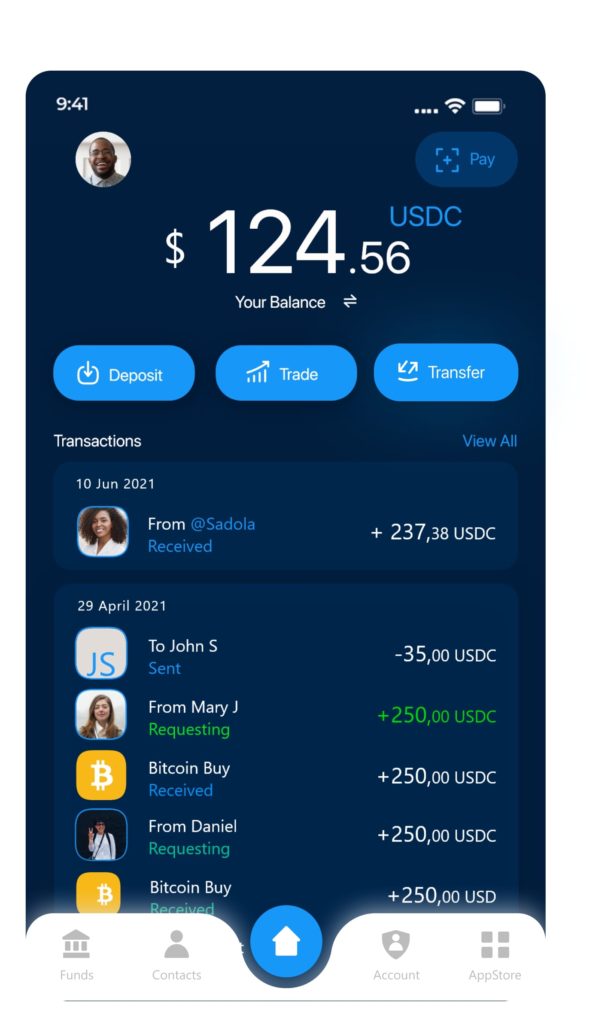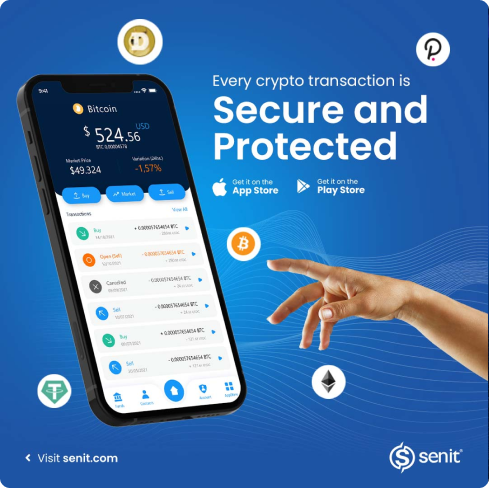What is a Crypto Wallet?
Cryptocurrency can seem very complex for a newbie. When it feels like you are getting a hang of it and starting to understand the basic concepts, you get thrown off by a whole new terminology. Now you hear you need a crypto wallet. What does that even mean?
A crypto wallet is a device or software that stores the public and private keys for your cryptocurrency. It enables you to send and receive cryptocurrencies and monitor your balances. A crypto wallet is the safe where you can store the access to your crypto. Remember how you’ll reach into your wallet for cash or a card to pay for a bottle of coke for the third time in a week? Your crypto wallet is where you reach into and do your crypto transactions from.
Your cryptocurrencies exist on the blockchain and are not stored in any exact location. So, this means that they are NOT stored inside your crypto wallet. However, what the crypto wallet stores is your private and public keys which are the access to your account. To perform transactions with crypto currencies, you need a crypto wallet.
How it works
Every crypto wallet has a private and public key associated with it. If you have a bank account, you probably have an account number that links transactions to your bank account. For the crypto wallet, the ‘account number’ is the wallet address. Remember, unlike your bank account that has your account name attached to it, cryptocurrency is pseudo anonymous. So instead of an account name and number, the crypto wallet has a wallet address that is often a string of letters and numbers. The wallet address is what you share when you want to receive cryptocurrency or link a transaction to your crypto wallet. This wallet address is the public key stored in your crypto wallet.
Since identities aren’t linked to accounts, how does the owner of a crypto wallet access their assets? Oh well, that is where the private key comes in. The private key is like the password to your crypto wallet. It gives you access to your crypto wallet to perform transactions and monitor your assets. As a result, anyone who has your private keys has access to your crypto wallet. If someone else accesses your crypto wallets with your private key and transfers your cryptocurrency to another account, you can’t recover it or reverse the transactions. That is why it is important to keep your private key secure and safe.
Wondering how the private key looks? Does it look like a key? Well, the way private keys appear depends on what kind of crypto wallet it is. It can be in the form of recovery phrases; a set of words. You’ll have to keep these words or phrases safe because losing them could be losing access to your account.
Transactions with Crypto Wallet
To send or receive cryptocurrency, the wallet addresses or public keys involved in the transaction have to support the cryptocurrency. It’s like sending dollars from one account to another. Both accounts have to support the currency as you can’t send dollars into an account that doesn’t support it. The crypto currency you send or receive from one wallet to another has to correspond with the kind of crypto wallet it is. For example, you can only send and receive bitcoin between bitcoin addresses.

In regards to the coins they support, there are various kinds of cryptocurrency wallets. Some examples are Bitcoin wallet, Ethereum wallet, Blockchain wallet, etc.
Types of Crypto Wallet
There are two types of crypto wallet; a software wallet and a hardware wallet. Even though they both have the same purpose, there’s one difference; the location they are stored. A software wallet stores the public and private keys online while a hardware wallet stores them offline.
Software Wallet
A software wallet can also be called a hot wallet. With a software wallet, your keys are connected to and stored on the internet. There are a lot of options for a software wallet and one of them is using the one provided by an exchange. Exchanges are places you go to perform cryptocurrency transactions. You can trade, buy, sell and perform other transactions. Some cryptocurrency exchanges design crypto wallets stored on their servers and users can access their wallets through their account in the exchange.
Your software wallet can be a mobile crypto wallet, desktop wallet or a web-based wallet. Their names describe the specific place on the internet that you can access them.
Hardware Wallet
A hardware wallet, also called a cold wallet is a device offline that stores the private and public keys. The keys are stored on a physical device that is not connected to the internet. They often look like the USB drive you plug into your computer for external memory. To use, you have to plug your hardware wallet into the USB port of your computer.
What crypto wallet is best for you?
Well, that’s a tough question. The best crypto currency for you depends on the kind of transactions you perform, the amount of assets you have and what your financial needs are. As with anything that gives you options, each wallet has its advantages and disadvantages.
The hardware wallet is safer than the software wallet. This is because it’s offline and as a result, is not as prone to cyber-attacks as the software wallet. However, it still has its risks. If you lose or misplace the device, it could mean saying goodbye to your cryptocurrency assets forever.
While software wallets are more prone to hackers and other security issues, it’s also more handy than the hardware wallet. If you perform regular cryptocurrency transactions, it might be more convenient to have a wallet that is online and accessible real time.
How do you keep your Crypto Wallet safe?
As you’ve now learnt, while your public key can be shared with anyone you want to receive cryptocurrency from, your private key should be kept personal and hidden from others. Sharing it means sharing access to your cryptocurrencies.
Storing your private key in your device or online like iCloud or Google drive isn’t a recommended way to keep it safe. What if you lose access to these accounts or misplace your phone or laptop? Worst still, what if they get hacked? It could help to write them down on paper (offline) and store them in multiple locations known to you alone. That way, if one location is destroyed or you lose access to it, there will be another option.
Without doubt, an offline wallet is the safest option, however, it doesn’t mean that software wallets aren’t safe too. There are also extra steps you can take to keep it safe and secure like setting up a two step authenticator. If you are considering a software wallet provided by an exchange, it’s important to do your background check on the exchange and make sure they are reliable.
Also, use a strong password and avoid using the same password across all the accounts you own. You love your dog dearly but don’t use their name please, or your own name either. Update your password regularly and make sure you can remember each new one.










